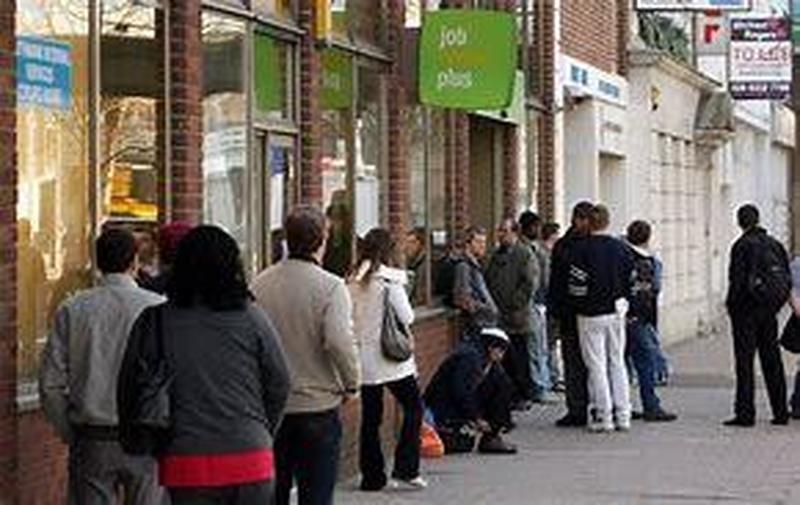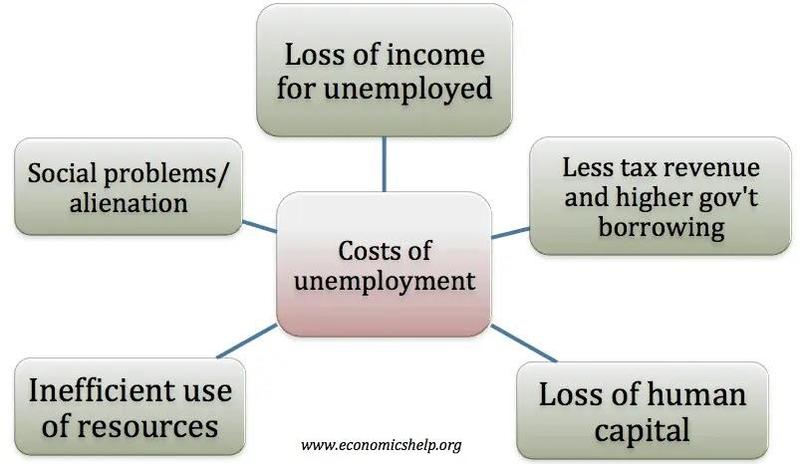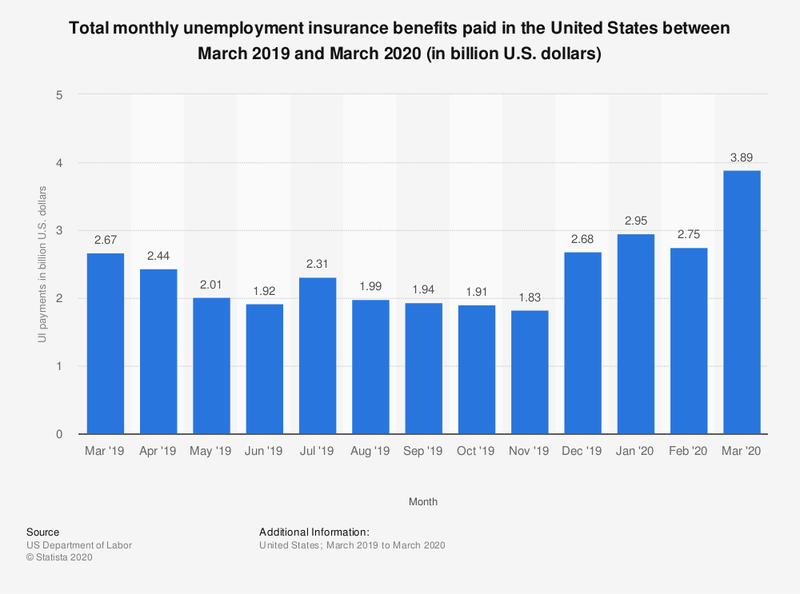Don’t Expect Answers From Washington As The Fabric Of Society Unravels
by Bruce Wilds via Advancing Time blog,
ZeroHedge.com
Sun, 05/03/2020
One Face Of Unemployment Is Lost GDP
Unemployment has several faces. It will be interesting to see how America handles the massive unemployment caused not so much by COVID-19 but the government’s effort to hold employers responsible for the cost. When the government passed a law increasing employers’ responsibility for paying workers even when there was no work for them, businesses countered by mass firings. This was both the logical move and the only way most businesses could survive.

Over time the lack of gainful employment acts as a cancer upon society. Some of the poorly crafted legislation recently passed in the capital of our nation could be considered incentivizing people not to work. The evidence of this can be found in the reports of employees not wanting to return to work because they see themselves making just as much or even more money staying home or being unemployed. When we couple this with the fact many people are unmotivated when it comes to rushing off and working for “the man” it is fair to understand why some people have adopted the attitude, I won’t do that.
The evolution of the covid-19 crisis has disrupted supply chains and is starting to trigger food shortages across the country. It is causing many people to question whether an economic depression is unfolding as over 30 million people are now out of work after only six weeks. A matter of great speculation is just how rapidly the unemployment rate will fall back once this pandemic begins to subside. Congress has decided to make it rather financially rewarding not to work, and millions upon millions of Americans are going to be more than happy to take advantage of that opportunity for as long as it lasts. It is only by creating a pathway that rewards those that wish to move upward on the social-economic ladder that this attitude can be changed.
People tend to forget or push aside the matter of just how much unemployment cost society.
This cost takes many forms. There are economic and social costs in this situation. They include a slew of things from, lower on-the-job training to things such as alienation and lost GDP. This can result in homelessness, depression, and even increase drug or alcohol addiction.

Lurking behind all this is the fact that State governments get the money to pay claims by debiting the employer’s Unemployment Insurance account or by raising the employer’s UI taxes. A deduction in the account balance may also cause a rate increase, this means each claim assessed to an employer’s account can result in a tax rate increase in future years. The cost of an individual claim can be significant but the higher tax rate for a business often has a much greater long-term impact. Many states use a three-year moving period to assign a tax rate and an awarded unemployment claim can affect three years of UI tax rates. This means the average claim can increase an employer’s state tax premium from $4,000 to $7,000 over the course of three years.
These increased UI tax rates will have a huge impact on an employer’s bottom line in the near future and this is something that is not being addressed. Instead, the focus is on unemployment. The situation is considered so significant that the Coronavirus Aid, Relief, and Economic Security (CARES) Act has expanded unemployment benefits to self-employed and part-time workers through Pandemic Emergency Unemployment Assistance, which provides up to 39 weeks of benefits beginning on or after Jan. 27, 2020, and ending on or before Dec. 31, 2020.

Above is a chart of what was paid out in recently in benefits. In March 2020, 3.89 billion U.S. dollars were paid out in unemployment benefits in the United States. This is an increase from February 2020, when 2.75 billion U.S. dollars were paid in unemployment benefits. This pales next to the more than 50 to 100 billion dollars we should expect to be paid out each month until this abates.
The ramifications resulting from this surge in unemployment have not yet been fully internalized, this is a huge deal.
In the blink of an eye, the U.S. economy has wiped out all the job gains since the Great Recession and more. There were already 7.1 million unemployed Americans as of March 13, according to the U.S. Bureau of Labor Statistics. When this figure is combined with the newest job losses, we are looking at more than 33 million unemployed, or a real unemployment rate of 20.6%. This would be the highest level since 1934.
History shows that creating good sustainable jobs is no easy task. Considering the cost of massive unemployment is increased tax rates and social decay, it is time we face the great-conundrum of how best to save jobs. This massive unemployment surge poses a huge cultural shock that must not be ignored.
During the time ahead we should expect the fabric of society to be tested, it may even unravel. Do not expect the answers to flow out of Washington but understand, now is the time we level the playing field between small and big business.
When all is said and done, Main Street matters more to most Americans than Wall Street.

